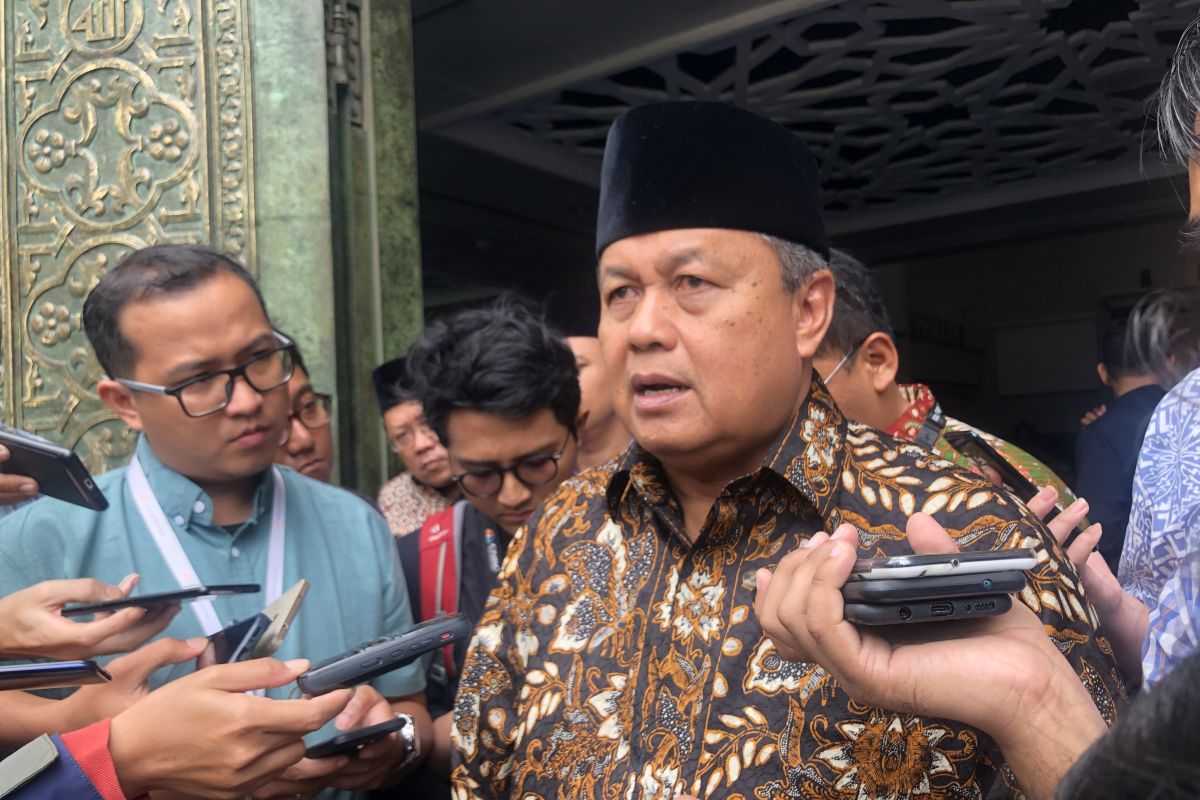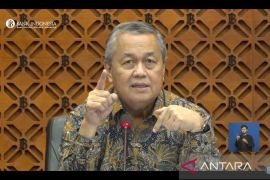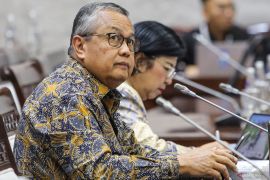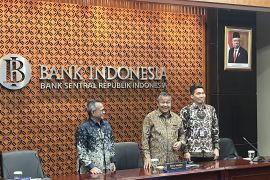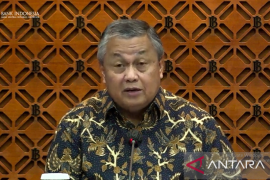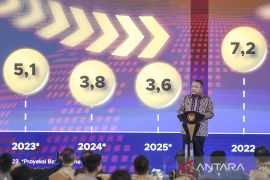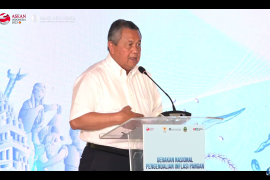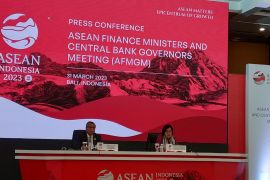Warjiyo remarked that the external conditions did not have a significant impact on investments entering Indonesia in accordance with the magnitude of inflow of foreign capital.
"Thank God, we close in 2019, with the achievement of external stability that is maintained with a significant influx of foreign capital at Rp224.2 trillion," Warjiyo remarked in Jakarta on Friday.
Warjiyo detailed most of the flow of foreign capital came into government bonds, or Government Securities (SBN), specifically Rp168.6 trillion, Rp50 trillion stock market, Rp3 trillion corporate bonds, and Rp2.6 trillion Bank Indonesia Certificate (SBI).
Furthermore, he stated that Indonesia's foreign exchange reserves had increased until the fourth quarter of 2019.
Based on the BI data, Indonesia's foreign exchange reserves reached US$127 billion.
Warjiyo stated that this signals an improvement in the balance of payments of Indonesia (NPI) in the fourth quarter of 2019 and a surplus is forecast to occur.
"Our foreign exchange reserves will rise again, thereby indicating that the balance of payments in the fourth quarter will experience a surplus. God willing, we will announce it next week," he stated.
Warjiyo also noted that in 2019, the stability of the rupiah was well-maintained, with the currency experiencing an appreciation of 2.68 percent and closing at Rp13,880 per US dollar.
Meanwhile, the credit default swap (CDS) was maintained at a low level, the rate of growth was only 60.6 basis points, the lowest in the past five years.
"Another indicator maintained is our premium CDS that is 60.6 bps. This is very low and also the lowest in the last five years," he stated.
The Central Statistics Agency (BPS) recorded an inflation rate of 2.72 percent in 2019, as the government was able to maintain the stability of prices, especially of commodities whose administered prices are regulated by the government.
"Prices were relatively controlled, particularly in terms of the administered prices," BPS Head Suhariyanto noted at a press conference in Jakarta on Thursday.
Inflation from administered prices in 2019 was only recorded at 0.51 percent as compared to 3.36 percent in 2018, Suhariyanto stated.
Inflation from government-regulated prices in 2019 was also lower than the core inflation of 3.02 percent and volatile food inflation at 4.3 percent.
"Last year, the gasoline prices had increased that contributed to 0.26-percent inflation and 0.10-percent air freight rates, which no longer contributed to inflation in 2019," he added.
Related news: Foreign capital inflow reaches Rp220.9 trillion until November
Related news: Non-oil/gas imports increase due to inflow of capital goods: Minister
Related news: BI, OJK, LPS implement integrated bank sector reporting
Translator: Azis Kurmala
Editor: Sri Haryati
Copyright © ANTARA 2020
